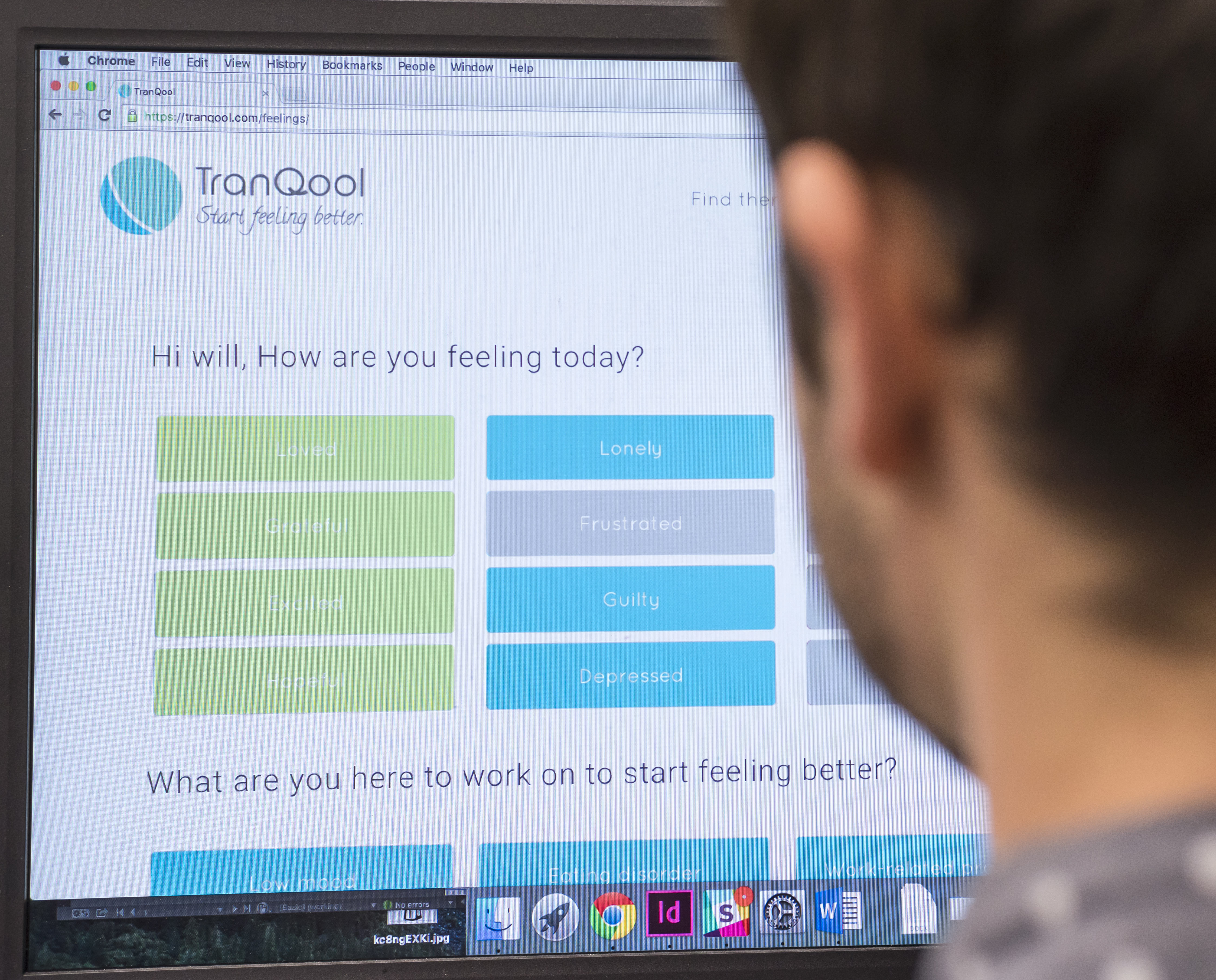Forum allows for mental health assistance online


Photo by Will Huang
Dubbed as the “Uber for Therapists,” the Toronto-based start-up TranQool aims to redesign how people look after their mental health.
TranQool is an online platform that connects licensed and experienced therapists to users based on the individuals’ needs, preferred language and location. At the moment, TranQool is only operating in Ontario.
Therapy sessions go for $60 per 45-minutes and are conducted through video conference calls through TranQool’s secure website.
Video therapy sessions are not recorded and clients uncomfortable with being on camera have the option to opt out of video conference calls altogether.
Chakameh Shafii, co-founder and chief executive officer of TranQool, began working on the company full-time starting last July. In under a short timeline, TranQool completed their soft launch and are looking to release their beta test in March 2016.
Shafii personally had anxiety and after finishing therapy, formed the idea.
“Once I finished it, I had the idea of, you know… There has to be a better way of doing this,” she said.
TranQool separates itself from the stereotypical strict clinical atmosphere by branding itself as a balance of “tranquility” and “cool.”
“We want to create a brand that people felt like it’s just an extension of their home, this is an extension of their comfort zone,” Shafii said.
A mood tracking device will be enabled in the beta test in March. Within the year, TranQool plans to partner with universities by offering subsidized therapy sessions for students and expand operations to Nova Scotia.
TranQool understands and caters to 72 per cent of consumers between the ages of 18 and 44 that prefer using video conferences with a mental health provider, as stated in a health report released by PwC in 2016.
The therapy-patient platform teaches users the principles of cognitive behavioural therapy to combat various mental issues such as anxiety, stress, sleep and eating disorders, depression and concentration problems.
According to Shafii, TranQool recognizes and solves the three pillars of barriers to mental health treatment.
The first is navigating the system. Generally, people don’t have a precise diagnosis of their problems and struggle with finding a therapist that can meet their needs. TranQool allows users to browse therapist profiles and switch between therapists until they find someone they are comfortable with.
The second barrier is affordability. With therapy sessions ranging from $120 to $400, TranQool offers an economical alternative to in-person therapy.
Therapists flock to TranQool because of the option to work in the comfort of their homes, reaching a larger audience and helping people who were originally inaccessible through traditional means as well as earning extra income outside of regular business hours.
The third barrier is stigma. Seeing a therapist shouldn’t be treated any differently, yet there is still stigma and fear of judgement that surrounds mental health. TranQool is discrete because therapy sessions can be performed anywhere on an electronic device with access to internet.
In addition to providing accessible and affordable mental health care that so many Canadians desperately need, TranQool works to increase dialogue and strike down the stigma of mental illnesses with their Twitter Campaign #TorontoSmiles.
“[Seeking therapy] has nothing to do with being sick, but it’s about understanding yourself and being able to control your emotions and being able to control your behaviours so that you can perform at the highest level you possibly can,” said Shafii.


